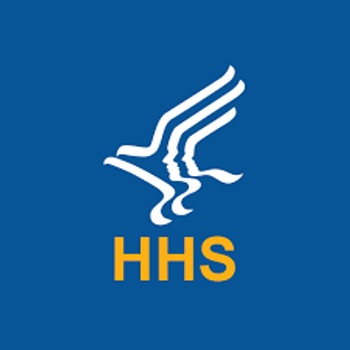
Policy
Latest News


What We’re Reading: VA Health Benefits Denied; Health Worker Industry Optimism; COVAX Redirecting Vaccine Spending

What We’re Reading: Eli Lilly Acquires Dice for $2.4B; 1.5M Dropped From Medicaid; Trans Americans Flee States With Care Restrictions
Latest Videos

CME Content
More News

Biden administration finalizes a deal on covering preventive care despite legal battle; CMS prepares safety net hospital reimbursement plans; over 1 million Americans have been dropped from Medicaid coverage

The Biden administration will impose drug price inflation penalties on drugmakers; a study reveals massive amounts of COVID-19 relief funds were stolen; experimental vaccine nearly doubles survival in patients in a trial.

The plan aims to reverse a significant surge in sexually transmitted infections, including gonorrhea, syphilis, and chlamydia.

According to a spokesperson, Merck is prepared to take the lawsuit to the Supreme Court as it challenges drug price negotiations as part of the Inflation Reduction Act.

A federal appeals court heard argument about whether to freeze preventative health screenings and care in the Affordable Care Act (ACA); Canadian wildfires trigger health threats as smoke descends south; a large study displayed the safety of COVID-19 mRNA vaccines in young children.

Merck sues to stop Medicare drug price negotiations; doctors delay lifesaving therapies due to cancer drug shortages; a federal appeals court will hear Affordable Care Act coverage prevention case.

Health restrictions on transgender adults and children; weight-loss companies to include obesity drugs; hormone patches or creams for menopause may have lower blood pressure risk than pills

The authors find that 340B-covered hospitals and grantees are contracting mainly with pharmacies in significantly more affluent neighborhoods than their own.

The FDA approved Pfizer’s respiratory syncytial virus (RSV) vaccine Wednesday; Medicare announced plans to largely cover a new class of expensive Alzheimer drugs; more states are extending postpartum coverage under Medicaid.

Debt limit deal will not effect Medicaid; a national safety board may make health care safer; experimental hemophilia therapy reduces bleeding.

AHIP president and CEO Matthew Eyles will step down later this year; the House Energy and Commerce Committee moved a series of health care measures concerning pharmacy benefit managers (PBMs); US debt default could stop FDA drug and device reviews, said FDA chief.


Kicking off the 2023 Greater Philadelphia Business Coalition on Health annual conference, Mark Fendrick, MD, of the University of Michigan, delivered a keynote exhorting the audience of employers and payers to implement the principles of value-based insurance design (VBID) in order to improve individual and population health and drive toward equity.

Blue Cross Blue Shield in Massachusetts sets agreement with Tufts Medicine using equity benchmarks; drug prices covered by Medicaid to undergo yearly audit; South Carolina abortion ban headed to governor as Planned Parenthood announces national staff cutbacks to shift resources to the states.

Surgeon General warns of social media’s harm; additional women in Texas cite health risks from abortion bans; White House supports bill against fentanyl trafficking.

WHO urges caution regarding artificial intelligence (AI) bias; South Carolina ban would restrict abortion at 6 weeks; appeals court pauses ruling barring free preventative health services.

Medicare Part D low-income subsidies alone are insufficient to improve the uptake and equitable use of high-cost, orally administered antimyeloma therapy.

The possible consequences for health care if the United States breaches the debt ceiling; skepticism follows proposal for over-the-counter birth control pill; North Carolina governor calls potential abortion ban harmful.

CDC Director Rochelle Walensky, MD, said she will leave the agency at the end of June, a few hours after the World Health Organization (WHO) ended the global emergency status for COVID-19 on Friday.

A settled class-action lawsuit paves the way for 5 million New Yorkers on Medicaid to have expanded dental coverage; 2 hospitals broke federal law by denying a woman whose life was in danger an abortion; mask mandates in most health care settings are being lifted around the United States.

FDA accelerates approval of drug for amyotrophic lateral sclerosis (ALS); hundreds of thousands could lose Medicaid coverage under Republican debt bill including work requirements; the Department of Veterans Affairs (VA) reports that half a million veterans have filed claims for health benefits related to toxic exposures.

A new rule could provide access to health care for Deferred Action for Childhood Arrivals (DACA) program recipients; North Dakota governor signs law banning most abortions in the state; legislators call on China to cooperate in investigation of COVID-19 origins.

Increases in Medicare Advantage market share over the past 10 years are largely caused by an increased preference for managed care among Medicare beneficiaries.

The Biden administration and drug manufacturers are looking at different ways to keep free access to COVID-19 vaccines; mifepristone remains available without new restrictions while a court battle continues; the goal to reduce HIV in the US by 2030 may fall short, some warn.

A study from investigators in the Quantitative Health Science, Neurology, and Radiology departments of Mayo Clinic investigated if and how social and structural determinants of health (SSDOH) might influence mild cognitive impairment and/or risk of dementia among participants of the Mayo Clinic Study of Aging.















